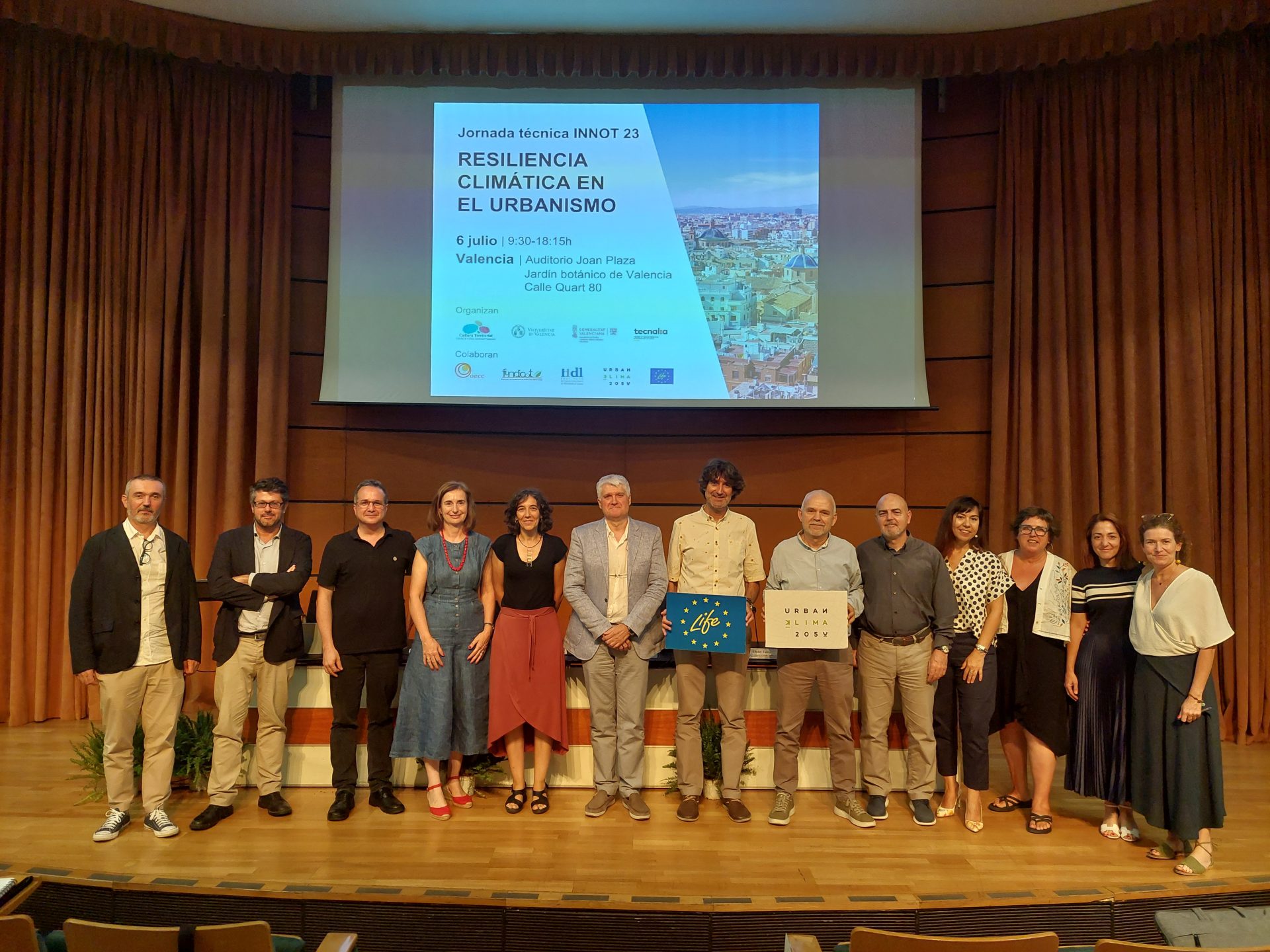"It is essential to define and take adaptation measures that are in line with natural processes"
The INNOT 23 conference on climate resilience in urban planning has concluded that Law 7/2021 on Energy Transition and Climate Change is an opportunity for climate change adaptation in urban planning
At the beginning of July, TECNALIA along with the Chair of Valencian Territorial Culture with the support of the Generalitat Valenciana, the Spanish Office for Climate Change, Fundicot (Interprofessional Association of Territorial Planning), IIdl, and the LIFE IP Urban Klima 2050 project organised the technical conference"INNOT 23: climate resilience in urban planning" in Valencia. The event, led by Efrén Feliu and Gemma Blanco, from TECNALIA's climate change adaptation team, included speeches by regional and local authorities (Basque Country, Navarra, Valencia, Catalonia, Andalusia, Bilbao and Seville).
During the session, creative solutions were presented, inspiring innovation in spatial-urban planning instruments and related processes. There was also an enriching debate on the importance of the multi-level territorial perspective, the legal framework and digitalisation.
Conclusions of INNOT 23
The motivating conference concluded that Law 7/2021 on Energy Transition and Climate Change is a great opportunity from the point of view of incorporating climate change adaptation into urban planning. In this respect, it is necessary to address adaptation and urban planning practice together, because beyond being compatible, adaptation needs urban planning and urban planning cannot ignore the need for adaptation.
It is also essential to identify and exploit synergies between climate change mitigation and adaptation, as they both converge towards the ultimate goal.
One of the points highlighted at the conference was the importance of defining and taking adaptation measures that are in line with natural processes. The renaturalisation of spaces and territories stimulates the natural capacity of ecosystems to adapt and to support biodiversity.
Furthermore, it is crucial that guidelines for urban planning and adaptation come from the territorial or supra-municipal level, following a cascading planning process. In this respect, it is important to have the support and involvement of all relevant administrative bodies.
Urban Klima 2050
In the field of adaptation to climate change in the Basque Country, initiatives such as LIFE IP Urban Klima 2050stand out, which is committed to the incorporation of climate change in the regulatory instruments for territorial and urban planning in the Basque Autonomous Community in order to achieve true resilience.
Mari Mar Alonso, Director of Climate Action of the Basque Government's Public Company for Environmental Management attended, representing Urban Klima 2050. In her speech, she highlighted the role of Urban Klima 2050 as "a collaborative project that enables us to work at all levels, strengthening collaboration between the Basque administration and various municipalities that will promote pilot actions that can be replicated in other towns".
Thanks to the event’s collaborators
We would like to thank Joaquin Farinos, co-organiser of the event from the Chair of Valencian Territorial Culture, Rosa Pardo i Marín, Francisco Heras, Eduardo de Santiago, Izaskun Abril, Jon Asua, Rosa Vilella, Segundo Álvarez Guirado, Marimar Alonso, Susana Ruiz Fernández, Eric Gielen, Roberto Galán Vioque, Maria Esther Moreno Leyva, Gabriel Ros, Manuel Borobio, and Jorge Olcina for their excellent participation in the conference.

